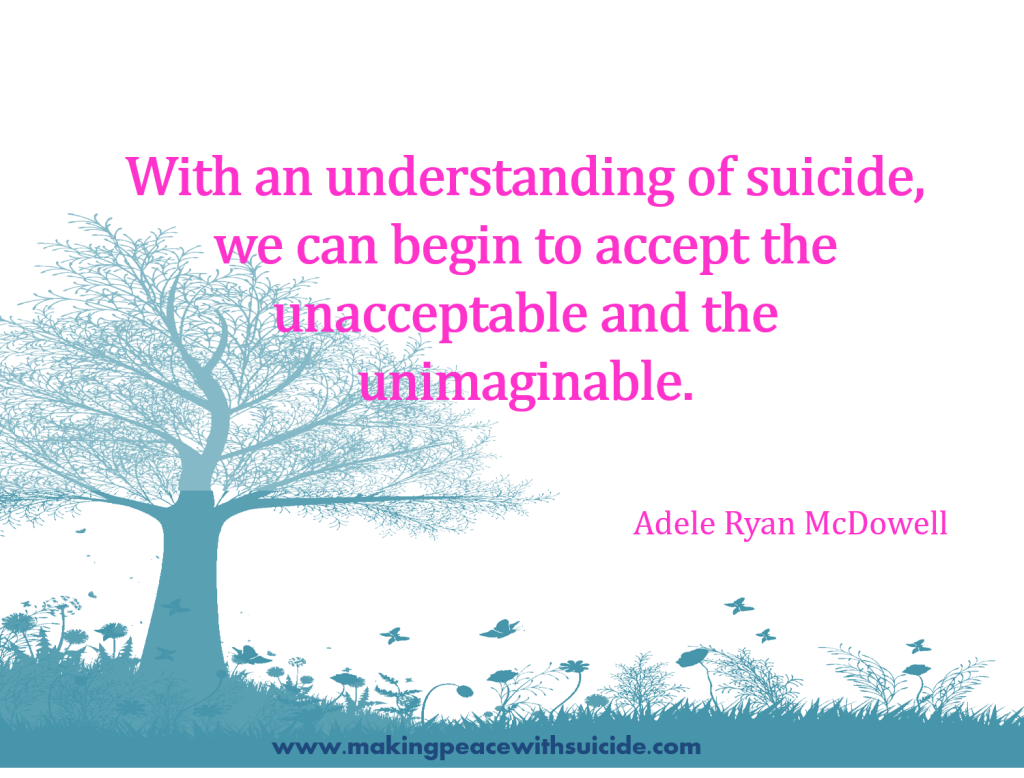 Remember the theme song from the show M*A*S*H? (“Suicide is painless…”) Alas, that is so not the case.
Remember the theme song from the show M*A*S*H? (“Suicide is painless…”) Alas, that is so not the case.
Your loved one’s suicide is the day you stop taking a full breath; the day you are left holding your broken heart in your hands; the day time stands still; and, unfortunately, the day people talk about, avoid or even blame you.
Suicide leaves you, the surviving loved one, holding the bag of squirming emotions and memories. There is the taint and taboo, guilt and remorse, rage and despair, confusion and regret, and the shame or guilt that somehow — in some possible way — you are responsible. You are left in a wake of jumbled emotions and self-doubts.
Suicide turns your life upside down. You find yourself vibrating with shock, disbelief, grief and, most likely, trauma from what you witnessed or envisioned in your mind’s eye. It is an enormous challenge to find yourself again and reclaim your desire to live fully after such a devastating loss.
How do you make sense of this kind of heartbreak?
Read more here .
